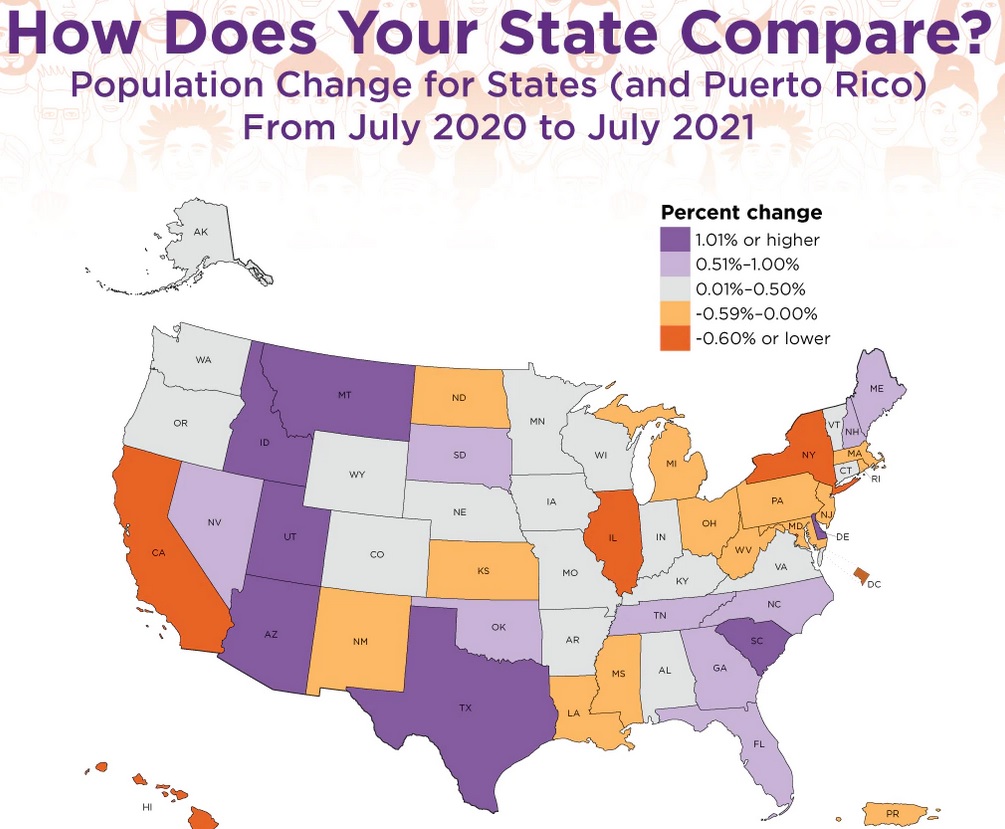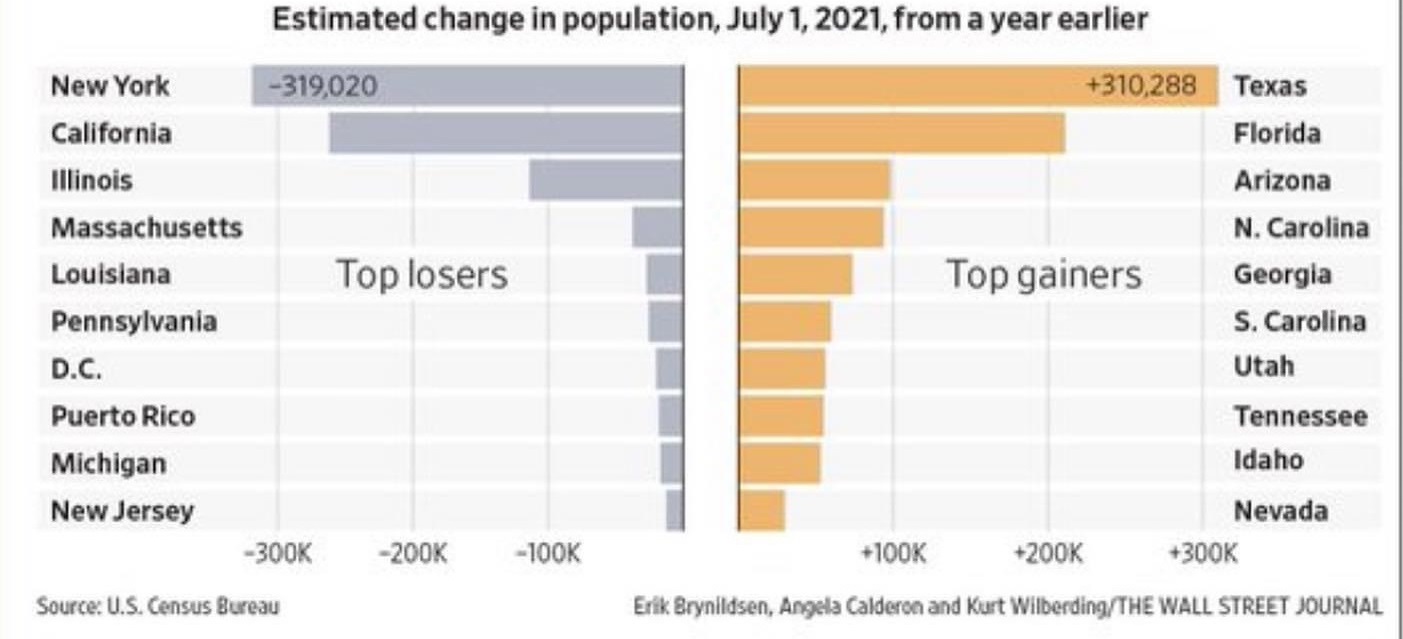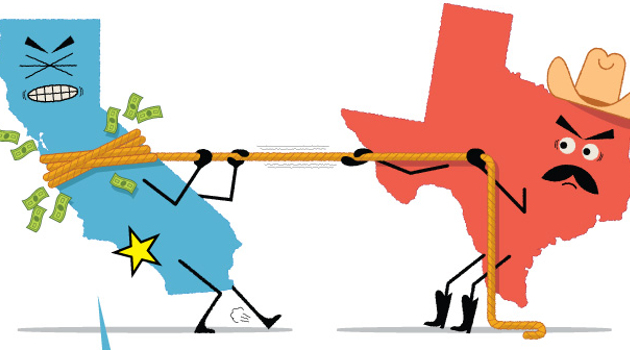I’ve written many times about how Americans are moving from high-tax states to low-tax states.
Now we have even more evidence because the Census Bureau has issued its annual report on state population changes, along with this accompanying map.

You don’t need to be an expert in map reading to see that California, Illinois, and New York are losing people at the fastest rate (orange states).
Likewise, the states gaining population at the fastest rate (purple states) include Texas.
This chart from the Wall Street Journal shows the biggest changes, as measured by the number of people moving in and out.

To be sure, taxes are not the only factor that drive internal migration.
But it’s also clear that people tend to move to lower-tax states, either because they overtly want to keep more of their money, or because they are attracted to the job opportunities that tend to be more plentiful where taxes are lower.
As you might expect, the coverage from Fox News highlights the fact that people are leaving blue states and moving to red states.
Between 2020 and 2021, the country has seen the lowest population growth since its founding, at only a 0.1% increase, but the biggest declines have occurred in Washington, D.C., and Democrat-led states, according to a report Tuesday by the Census Bureau. …New York with a 1.6% decline, Illinois with a 0.9% decline, and Hawaii and California that both saw a 0.7% decline. Meanwhile, the states that saw the biggest increase in population growth were Republican-run states, starting with Idaho at a 2.9% increase, followed by Utah with 1.7%, Montana with 1.7%, Arizona with 1.4% and South Carolina with 1.2%. …Florida and Texas, each saw a population growth of 1%.
Citing a different report, he Wall Street Journal opined a few days ago about the implications of migration for Illinois.
The Land of Lincoln is one of only three states, including West Virginia and Mississippi, to have lost population since 2010. But its population over age 55 has grown as Baby Boomers have aged. …Illinois is losing young people while Florida is gaining them. State development specialist Zach Kennedy notes that “the U.S. population actually grew in the prime working age, young adult age cohorts, 25 to 29, 30 to 34 and 35 to 39 year olds.” Illinois was among the few states to see a decline in these age cohorts. …“Only New Jersey lost more college-aged individuals out of state who never returned,” Mr. Kennedy says. Hmmm. What do the two have in common? …a shrinking population of prime-age working people and children means a smaller tax base will have to support growing retirement liabilities. Folks who stick around will have to pay higher and higher taxes. …each Illinois household on average is on the hook for $110,000 in government-worker retirement debt, up from $90,000 in 2019. …The per-household pension burdens in Iowa and Wisconsin were $3,500 and $3,200, respectively. Both states have gained young people. State and local government in Illinois is run by public-worker unions, and people are fleeing the economic and fiscal consequences.
The most important sentence in the preceding excerpt points out that “Folks who stick around will have to pay higher and higher taxes.”
And that will encourage even more of them to leave, which leads to even-further pressure for higher taxes on the chumps who remain.
Needless to say, that won’t end well, for Illinois or other blue states. Either they go bankrupt or future politicians do a big blue-state bailout.
P.S. This helps to explain why curtailing the federal tax code’s subsidy for excessive state and local tax burdens was so important.
P.P.S. This is also why federalism is both good politics and good policy.




